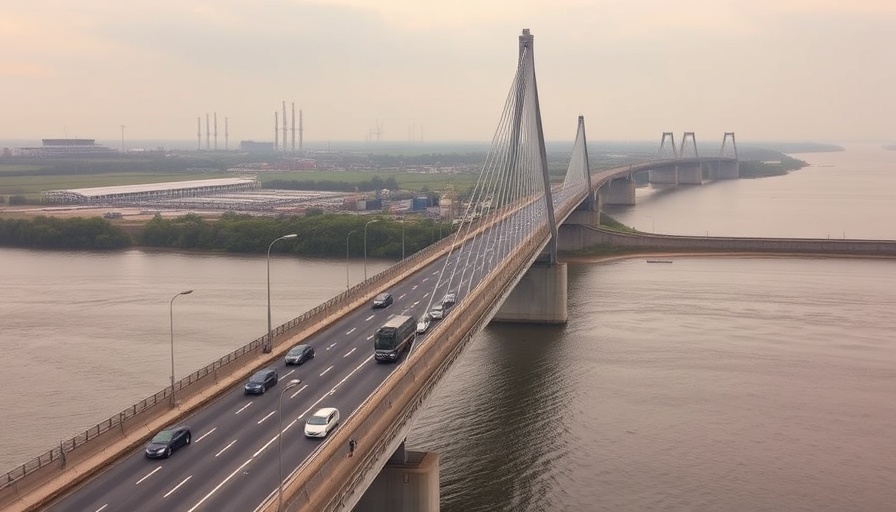
The Slow Lane: Why the UK Only Built 65 Miles of Motorway in a Decade
In an era where speed and efficiency are paramount, the UK's dismal record of constructing just 65 miles of motorway over the last ten years stands as a glaring indictment of infrastructure policy. This troubling statistic not only reflects the nation's struggle with transport but also raises questions about its broader economic strategies and future growth opportunities.
Historical Context and Background
The UK has long prided itself on having an intricate network of roads and motorways, which serves as a backbone for its economy. Historically, the development of the motorway system began in the 1950s, and the country witnessed remarkable growth in road construction, allowing for improved transport of goods and travel. However, the last decade has revealed stark contrasts, where bureaucracy and aging policies have stymied new projects and dampened ambitions.
The Driving Factors Behind Limited Expansion
Several factors have contributed to the abysmal growth rate of the UK's motorway network. Firstly, there is a surge in environmental concerns that have shaped public and government attitudes towards new infrastructure. Additionally, financial constraints have led to prioritizing budgetary allocations for maintenance over expansion.
Moreover, political roadblocks—both at the local and national levels—have strained the approval process for new constructions, leading to ever-lengthening timelines for essential upgrades. This stagnation reveals a significant challenge for both current and future policymakers, who must balance ecological considerations with the demands of an aging infrastructure.
No Road Ahead? What This Means for Businesses
For businesses, particularly those reliant on transportation, the lack of motorways poses serious challenges. Slow logistical flows can impede operations, dampening productivity and increasing costs. As Bay Area startups and firms in Silicon Valley know all too well, swift transport infrastructure is critical for scaling operations and attracting venture capital funding. Every delay not only affects the bottom line but also undermines competitiveness against global counterparts.
Comparative Analysis with Global Trends in Infrastructure
When viewed through the lens of global infrastructure trends, the UK's struggle with motorway expansion is notable. Countries like China and India are rapidly developing comprehensive roadway systems that bolster economic activity and facilitate trade. The stark contrast serves as a wake-up call for the UK, which risks being left behind in a world where infrastructure is a key determinant of economic viability.
Potential Opportunities for the Future
The necessity for a modern transport framework offers several opportunities. Adopting innovative technologies such as smart motorway systems can enhance traffic flow and reduce congestion without the need for extensive new construction. Moreover, tapping into sustainable practices in business could kickstart conversations around integrating eco-friendly transport solutions.
Implications for Stakeholders and Decision-makers
Policymakers, local authorities, and industry leaders all have a role to play in determining the trajectory of the UK's transport infrastructure. Stakeholders must engage actively to push for regulatory reforms that can streamline approvals and promote public-private partnerships. Only through collaborative efforts can the UK chart a course toward revitalizing its transport systems and reclaiming its competitive edge on the global stage.
The failure to progress in constructing new motorways is not just an itinerary issue; it is representative of broader economic strategies that require urgent reevaluation. For Bay Area business leaders and entrepreneurs, the situation calls for intriguing discussions on resilience and adaptation in the face of infrastructural stagnation.
What are the broader implications of this limited expansion? It's time to reflect on how we can collectively influence change in the transport sector and prioritize sustainable, forward-minded growth.
 Add Row
Add Row  Add
Add 



Write A Comment